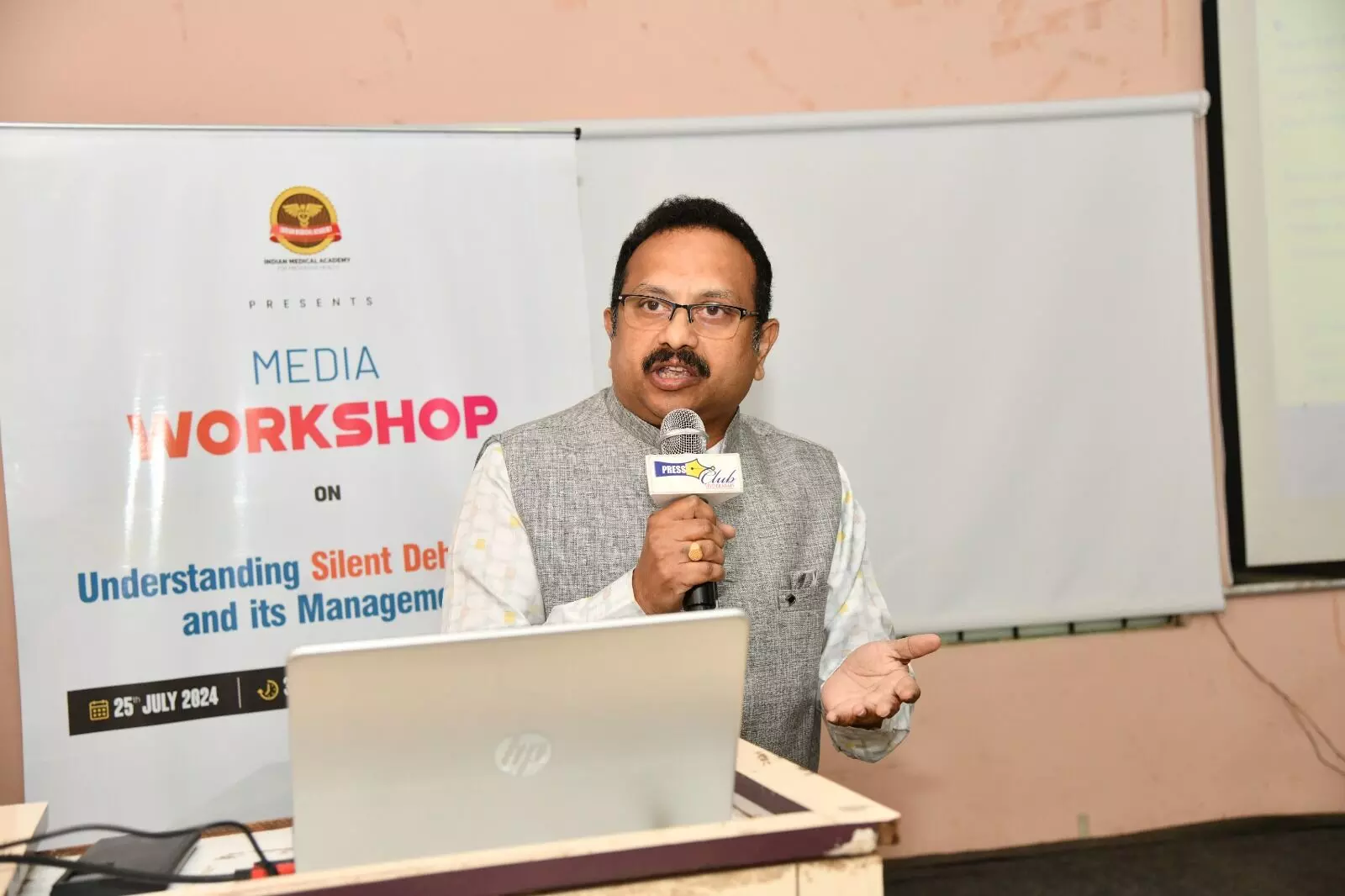Doctors highlight importance of fluid and electrolytes to combat rising silent dehydration crisis

Hyderabad has witnessed a 10-15% annual increase in kidney patients, attributed to silent dehydration
Hyderabad: Silent dehydration, a hidden health risk that often goes unnoticed, is quietly affecting millions across India, particularly in hot and humid climates like Telangana. Unlike the dramatic thirst associated with dehydration, silent dehydration occurs without noticeable signs or symptoms. As the body gradually loses fluids and electrolytes, it becomes vulnerable to dehydration. Conventionally we know that due to loss of fluid & electrolytes, diarrhoea can lead to dehydration. However, dehydration may also be observed in non-diarrheal conditions like fever including tropical fevers, nausea& vomiting, respiratory infections, heat related illnesses. Hyderabad has witnessed a 10-15% annual increase in kidney patients, attributed to silent dehydration [1]. This urgent issue demands attention and action to prevent further health complications.
Highlighting the critical significance of identifying and tackling silent dehydration, Dr. C. Suresh Kumar, former Professor and Head of Paediatrics at Gandhi Medical College, Hyderabad, emphasized, “Recognizing silent dehydration is crucial as it often goes unnoticed until severe. Water alone is insufficient to address this condition because it lacks electrolytes which are essential for maintaining fluid balance. Electrolytes help regulate nerve and muscle function and are vital for overall cellular activity. In addition, it is critical to address the increased energy demands in these non-diarrheal conditions.While electrolytes can be replenished with WHO ORS, it is best suited mainly for addressing dehydration in diarrheal conditions. For non-diarrheal conditions, electrolyte drinks with energy play an important role in recovery. This is further validated by a panel of India’s leading medical experts that WHO ORS may not be enough to match energy requirements in non-diarrheal conditions. While homemade fluids can be considered, ready-to-serve electrolyte drinks offer a convenient option. They provide known quantity of electrolytesalong with energy aiding in faster recovery and addressing silent dehydration.”
Raising awareness about the need for adequate fluid and electrolyte intake is essential, especially for high-risk groups such as children and the elderly, to ensure better hydration and quicker recovery from acute and chronic non-diarrheal conditions.”It is evident that certain demographics, particularly the elderly and children, are susceptible to the dangers of silent dehydration. For example, diseases like dengue, a common tropical fever, can lead to severe dehydration and electrolyte imbalances if not managed effectively. Tragic incidents across India further illustrate the severity of this crisis, including the loss of at least 13 lives due to dehydration and heatstroke during a public event in Maharashtra, as well as cases in Indore and Hyderabad where children tragically succumbed to dehydration. These distressing occurrences underscore the urgency of addressing and preventing silent dehydration to safeguard vulnerable populations.
Prof. Dr. N. L. Sridhar, M.D. (Paed), LLB., a Professor at the Apollo Institute of Medical Sciences and Research, Hyderabad, sheds light on the critical role of hydration in maintaining good health and facilitating faster recovery in non-diarrheal conditions. He emphasizes, “Oral fluids and electrolytes are not only essential for maintaining hydration but also play a crucial role in holistic recovery. It is crucial to be aware of silent dehydration, a covert condition that can develop rapidly, especially among children and the elderly, and lead to long-term health problems. This highlights the importance of proactive hydration, particularly in extreme climates and during physical exertion, to prevent severe health complications and ensure overall well-being.”

